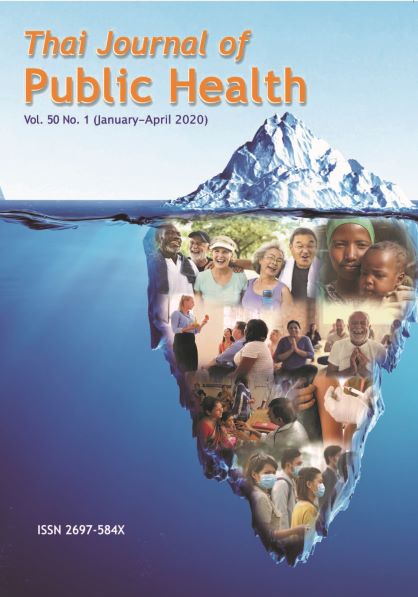Nutrition Literacy among Grade 9 Students of Bangkok Metropolitan Administration Schools
Keywords:
nutrition literacy, grade 9 students, bangkok metropolitan administration schoolAbstract
Nutrition literacy (NL) is a specific issue under the concept of health literacy which has become of interest for prevention of chronic diseases related to food consumption. This cross-sectional survey research aimed to examine the NL level and its associated factors among the grade 9 students in Bangkok metropolitan administration schools. Data were collected from 535 students using a self-administered questionnaire. Chi-squire test and binary logistic regression analysis were performed to examine the relationship among the study variables. The results showed only 38.9 percent of the sample group had an adequate level of NL, and the rest had fair (38.3%) and inadequate levels (22.8%). Binary logistic regression analysis revealed that the adequate NL level was significantly associated with a cumulative grade point average of 3 and above (OR = 2.26, 95%CI = 1.28 – 4.00), being female (OR = 1.86, 95%CI = 1.23 – 2.82) and use of online media –i.e. website (OR = 1.59, 95%CI = 1.62 – 2.47) and social media (OR = 2.48, 95%CI = 1.45 – 4.24) for searching nutrition information. The findings indicate the needs of NL development, especially among male students and those with a low cumulative grade point average. Communicating reliable nutrition information through different types of online media could be one of the possible ways of enhancing nutrition literacy.
Downloads
Published
Issue
Section
License
Creative Commons License CC-BY-ND


